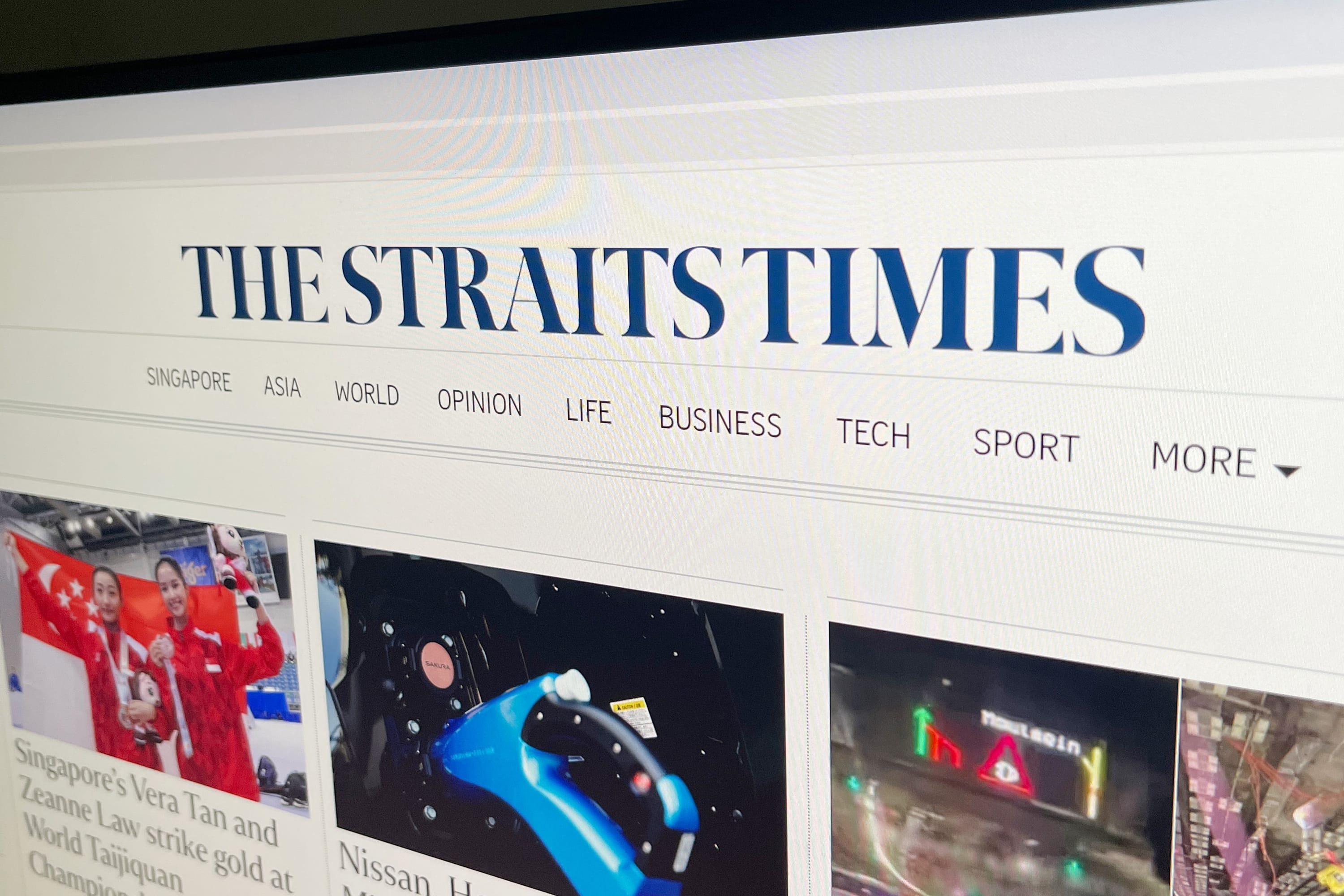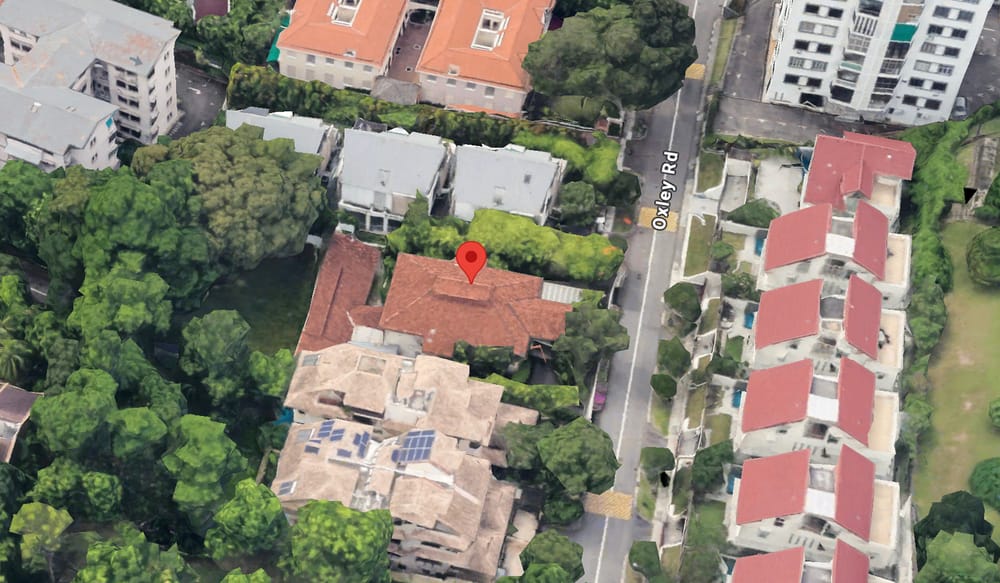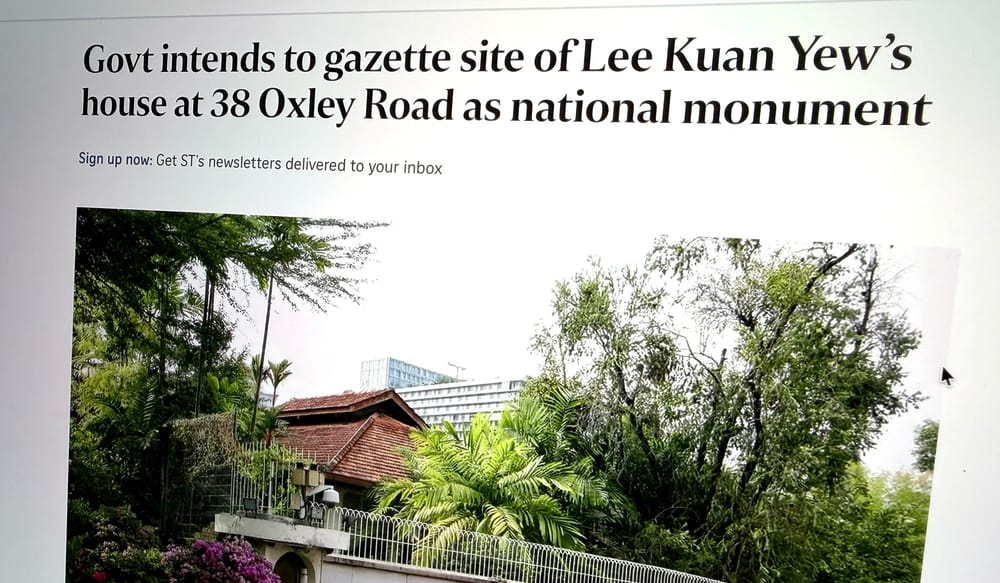“How can those who have benefited most from our meritocratic system contribute to making it fairer?” asks Bhavan Jaipragas, the new Deputy Opinion Editor in the Straits Times, and one can only wonder if SPH has abandoned merit in its hiring processes now that it's entirely funded by the state.

Singapore's globally acclaimed success has been built on the bedrock of meritocracy – i.e. the practice of rewarding those who perform best regardless of their background, ethnicity, gender and so on.
All of a sudden it's no longer "fair"? I'm sorry, what?
"Our meritocracy, which we consider the country’s main organising principle, has served us well. However, it is in no one’s interest for it to ossify and hinder social mobility." – rules a person whose only professional experience in life is writing about things he has no practical experience in.
Or, for that matter, no practical experience in any other domain of human activity.
Perhaps it is true, then, that Singaporean meritocracy deserves a refresh if people who have never done any practical thing and possess no practical skill, ascend to positions of responsibility for public media broadcast that is supposed to shape opinions of millions of voters.
Singapore’s Gilded Age?
Mr Jaipragas proceeds then to assail the American Gilded Age, betraying not only his personal beliefs but a corresponding ignorance of history and the influence of the rich Americans living at the break of the centuries not only on their country but entire mankind.
"We do not want a Singapore that mirrors the state of America’s Gilded Age, where the dominance of an entrenched elite, who could pull up the opportunity ladder behind them." - he continues, which is a little bizarre, considering that what followed the period of this rapid American industrialisation was an elevation of the living standards of millions of people in and out of America.
In similar ways we see vilification of the rich of today, despite millions using services and products they devised to great benefit of all.
The Gilded Age is often framed as a period of excess of the wealthy and abuse of the working class, and yet somehow rambunctious, self-righteous commentators appear to forget the philanthropy of the likes of Andrew Carnegie or John D. Rockefeller, and the legacy that the "robber barons" in the fields of science, education, culture or medicine.

It would be most beneficial for Singapore, as it would for any other place, if billionaires invested their wealth into education or research targeting elimination of deadly diseases, saving millions of lives, just like the Rockefeller foundation did 100 years ago, laying ground for global healthcare at a time when nobody gave a damn about millions of people suffering from parasitic diseases.
This skewed representation of those we should all learn from and the denigration of objective achievement is driven by little else than envy of those who desire the results without the effort. Is it really in Singapore's interest to promote these attitudes?
Dream hoarding
According to the Straits Times editor the elites are not content with the rewards they have already received but are somehow erecting walls around them to prevent the rest of the society from ever reaching them.
In his argument he quotes an American author who alleges that the upper middle class is hoarding opportunities (i.e. "dreams") by "exclusionary zoning in housing districts, college admissions, and the allocation of high-quality internships through connections."
However, even if we assumed these observations were accurate, I can't see how they apply to Singapore, where 80% of the society lives in public housing, where million dollar car brands are not infrequently spotted in HDB car parks, while education (including its world-class universities) is open to all and generously subsidised by the state.
Apparently, according to the author, the problem is lack of "inclusivity", as if people were entitled to admissions on the basis of birth alone, simply so that nobody feels left behind, even if they have little to offer.
Again, how exactly is this supposed to help Singapore's future? And is there even a single country which has measurably benefited from this approach?
Mr Jaipragas calls for recognition of a broader array of talents, instead of what he calls a "conventional or narrow set" – but he stops short of naming them. Or arguing why existing schools should necessarily cater to them.
I'm sorry, but what exactly are those talents which, allegedly, go unrecognised and why should the entire system be bent out of form to serve them?
Strength in specialisation
Every organisation on this planet benefits from focus on its core competences. There's not a single example of one which would excel at providing multiple different services or products, be it for or non-profit, in public or private sector.
Not even world's richest billionaires keep all of their activities under one roof. That's why Elon Musk's Tesla is separate from SpaceX or X, each with its own structure and people.

Not even Japanese zaibatsu or Korean chaebols, which often bear the same names, are organisationally uniform. Other than the sign on the door they are internally separated by business verticals – i.e. the expertise and talents of the people they employ.
So, why in the world should we try to impose clearly unworkable rules on public education?
Why should a single school suddenly make provisions for different categories of students, with different talents, backgrounds and capabilities?
I am all for creating new institutions which will cater to those reportedly valuable needs, but why should the entire public education be reformed if even its proponents can't be bothered to name what they are?
There's a reason pupils attending the same schools tend to stick together – another problem identified by Straits Times editor (imagine seeing this as a negative) – because they often have shared interests and experiences.

Simply dumping more diverse group of kids into an elite school won't suddenly make them all get along or become friends for years to come.
Heck, ask yourself how many friends from school days you're in contact with today and what exactly is the reason if you do, if not shared interests which have survived for subsequent decades.
Blowing up public education for the sake of "inclusivity" is just watering down a system that has proven itself for decades, on no basis other than left-wing ideology which makes such empty gestures popular these days, regardless of the likely negative impact they will have on those it affects the most – the children.
If merit is unfair then how does SPH Media spend public money?
This sort of opinion would be fine if it came from a guest. After all, state-funded public media should serve as a forum for all sorts of views, if only for the sake of variety in national discourse.
However, this voice came from within the Straits Times, from a person in a position of some responsibility not only for his own words but the opinions that may or may not go to print or web (Deputy Opinion Editor).
Which raises a fundamental question: if the Straits Times and, by extension, SPH Media Trust, employs people who do not value merit, then what exactly are the rules it follows while spending hundreds of millions of dollars of public money each year?
Remember, it's no longer a for profit business but a not-for-profit organisation generously funded by taxpayers.

Are the views voiced by its employees a symptom of the organisation abandoning merit as a management principle, while being entrusted with enormous sums of money to keep the public informed?
If merit is now considered out of date then what are the guiding principles of its management? Shouldn't the public be made aware of how decisions are made there given the disdain for meritocracy voiced from the Straits Times itself?
Hundreds of millions of dollars in taxpayers' money should not serve promoting some ideology over competences. You can choose to do that in a private outlet, not a public one.









